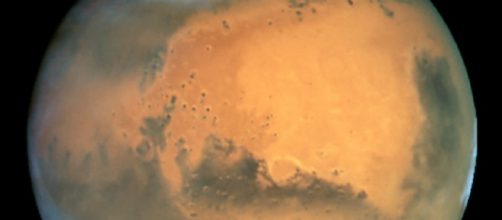According to the Verge, celebrity astrophysicist and media personality Neil deGrasse Tyson cast doubt on the idea that Elon Musk’s SpaceX or any other private group will beat NASA to Mars. That Musk’s ultimate dream is to found the first settlement on the Red Planet is no secret. He has hinted that he is developing something called the Mars Colonial Transport, the mother of all heavy lift rockets, to accomplish the goal. Details are lacking about what the MCT will look like except it will be capable of taking a 100 people or the equivalent cargo on a one-way trip to the Red Planet.
The cost of a ticket would be $500,000, well within the reach of anyone willing to make a fresh start on an alien world. Musk himself has expressed the wish to die on Mars “though not on impact.”
Tyson, citing the economics of space travel, doubts that Musk is going to make it. Governments, on the other hand, do not have to concern themselves with petty matters like making money. Columbus preceded the Dutch East India Company across the ocean from Europe.
Tyson’s account is simplistic, but pretty much accurate. The pioneers of the great age of exploration were paid for by governments, out for God, glory, and gold. The same process took place during the opening of the American West. Lewis and Clark, at the behest of President Thomas Jefferson, explored first all the way to the Pacific.
Then the fur trappers, the settlers, the gold miners, and the railroad builders followed.
Tyson’s assessment is not likely to sit well with Musk’s fan base. Many space enthusiasts have grown impatient with NASA and the snail-like pace with which it has opened up the high frontier of space. The last time anyone was on the moon was December 1972. At one time, the space agency envisioned people on Mars by 1986. The latest date for astronaut boots on the ground of the Red Planet is about 2036 or later. It is only natural that people might look to a swashbuckling entrepreneur, unimpeded by politics and bureaucracy, to pick things up.
But Tyson is right about space exploration being expensive. Indeed, the only reason SpaceX will shortly take people to and from low Earth orbit is because NASA is paying for it.
Of course, maybe that is Musk’s business plan. If he can get NASA to pat for his Mars settlement, convincing the space agency that it can happen sooner and cheaper than if it did it in house, then maybe both Musk and Tyson will be right after all.

